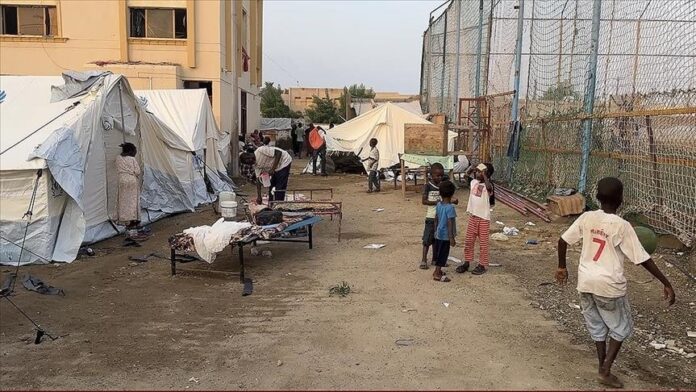The Sudanese Ministry of Health announced on Tuesday the registration of 2,729 cases of cholera, including 172 deaths, in several states across the country over the past seven days.
In a statement, the ministry reported, “There has been a surge in cholera cases in a number of states, with 2,729 cases recorded in one week, including 172 deaths.”
The ministry clarified that “90 percent of the new cases are in the states of Khartoum, Gezira (central), North Kordofan (south), Sennar (southeast), White Nile (south), and River Nile (north).”
Meanwhile, Médecins Sans Frontières (Doctors Without Borders) stated that cholera “is spreading widely in Khartoum State, and the organization is working closely with the Ministry of Health to strengthen its efforts and respond to the outbreak.”
In its statement, the international organization mentioned the presence of “13 cholera treatment units operating in Khartoum State, with the organization supporting 7 of them to ensure they are functioning at full capacity and can expand their capabilities as needed.”
The organization called on donors, the United Nations, and international NGOs “to urgently step up efforts to improve water, sanitation, and hygiene in Khartoum to curb the spread of the disease.”
On Saturday, the Sudanese Ministry of Health announced that the average number of cholera cases in Khartoum State has ranged between 600 and 700 per week over the past four weeks.
Meanwhile, the total number of cholera cases has reached 60,993, including 1,632 deaths, according to the latest government statistics released on May 6.
On August 12, 2024, Sudanese authorities declared cholera an epidemic in the country. However, the outbreak had declined since February 2025 before resurging again due to the use of contaminated drinking water following the shutdown of major water stations in several areas, according to observers.
These health disasters coincide with widespread water and electricity outages across the country, resulting from the ongoing war since mid-April 2023 between the army and the Rapid Support Forces, which has left more than 20,000 dead and around 15 million displaced and refugees, according to the United Nations and local authorities. Research by American universities has estimated the death toll at about 130,000.
(Anadolu Agency)


